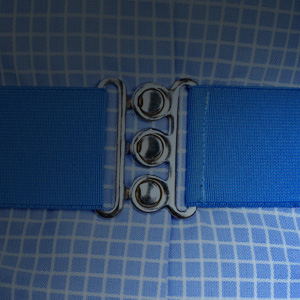
Breakfast Seminar
The first Care Conversation of 2016 heard the views of Professor Theresa Murphy, Director of Nursing at The Hillingdon Hospitals NHS Foundation Trust, on ‘leading a clinical workforce in a post-Francis world’
- NULL - NULL
- NULL
“In Shakespeare’s Henry V the king goes out in disguise to listen to what his troops are saying,” Theresa Murphy told Care Conversation delegates. “They were saying, ‘why would we follow this fool to our deaths in a foreign field?’ Yet they followed him, and won, despite being outnumbered 50-1.”
It was possible to find a parallels with NHS leadership, she said, not least in that 50-1 ratio – something that was ‘not unusual’ in an A&E department. “One of the questions I get asked most often is, ‘is it safe to be a patient in your hospital?’ But it’s not binary – what’s safe today might not be tomorrow, and vice versa.”
When it came to the question of what ‘good’ looked like in the NHS, one of the key measures was the ability to share with family members and loved ones in a transparent way that something had gone badly wrong, she said. Transparency and candour were vital, as was publication of data. “You can make data say whatever you want it to say, apart from in one area – patients are very unpredictable.”
‘Sharing the good’ was essential, she stressed, and creating the right culture meant ‘leading from the front’ by spending time on the frontline. Additionally, some of the best nurses in the UK had not even trained as nurses, she pointed out, meaning it was also vital to “embrace the opportunities” of the team.
“Some of the good news that people don’t necessarily get to hear is that 96% of patients at my hospital would recommend it to friends and family,” she continued. “When you meet politicians they’re very interested in what patients say – because they’re their constituents – so that really helps to focus their hearts and minds.” Her organisation also had a low vacancy factor and excellent performance in referral to treatment, cancer waiting times, and infection control and prevention. “Unfortunately, in this climate, the one thing you’ll always be judged on is money. If you don’t have a clear line of sight on recruitment, and you have a high vacancy factor and an out-of-control A&E, then your agency costs will go through the roof.”
More investment and support was needed for ward sisters and charge nurses, she said, which meant a significant culture change. There was also an issue of the process of holding to account in the NHS still sometimes being seen as the same as performance management. “It’s about freeing that up so it’s OK to do the right thing or blow the whistle, because we’re all in it for the right reasons. There’s still work to be done in terms of the culture, even in the best organisations.”
Another huge issue in the NHS was IT, she stated. “It’s the biggest enabler in terms of how we change healthcare, and huge amounts of money are spent on it, but we still don’t get it right. I don’t understand how we can have a situation where Tim Peake can communicate with us from space but we don’t have a single pathway where we can talk to each other in the NHS.”
IT had the potential to be a huge ‘game changer’ for people with chronic illnesses, she continued. “They should be able to just sign in and access their records from anywhere in the world, and it’s crazy that they can’t. Continuity in patient care is vital – with your doctor, your pharmacist and everyone else – and if you overlay that with good IT then you’re clearly going to have a healthier population.”
While the Francis report had stressed the importance of having the right staffing ratios, there were £20 billion of savings to be found in the NHS, and staff represented 78% of costs. “But what Francis allowed us to do is to put in some ballpark measurements that were not there before – having a ratio you can work to and hold boards accountable to. What we’ve got is a bit of a perfect storm, with regulators saying ‘it should look like this’ but without us having the resources to deliver that. But where you have great teamworking it might be that you don’t need those numbers.
“Francis gives us is the ability to say ‘this is what good looks like’ but also to pay attention to the culture of our own organisations. It’s about making teams work differently. It’s all there – it’s just about making it more mainstream.”
Get in touch to register your interest in joining the network
View all past events
